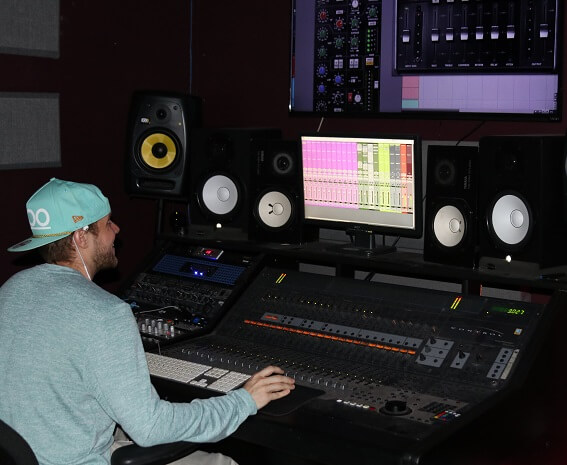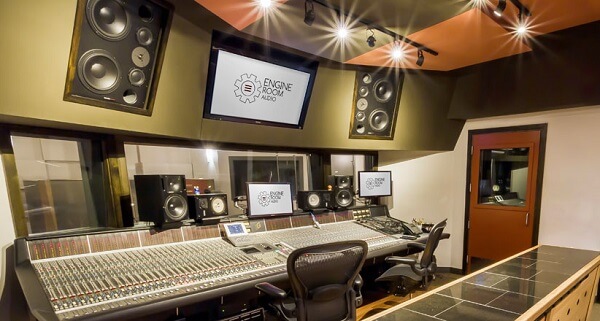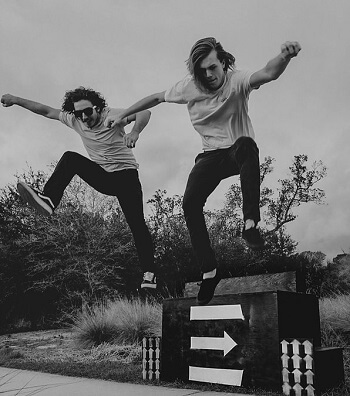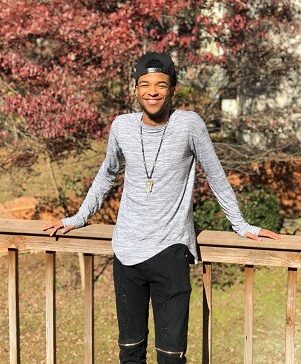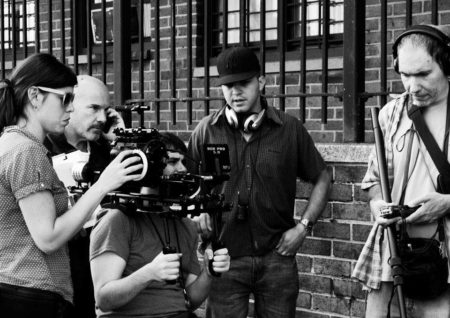
Film Connection mentor, filmmaker Zef Cota
As a filmmaker, Film Connection mentor Zef Cota (South Bronx, New York) is an exemplar of keeping plenty of irons in the fire. In addition to heading up his own narrative film production company,
Alphabet City Films, he regularly does film work for various clients, shooting commercial projects and music videos under his commercial company, Filmtek.
We recently caught up with Zef to talk about his indie feature
The Trouble which premiered at the 2018 Action on Film Festival in Las Vegas and where Zef won “Best Director” in the feature film category. Along with being nominated eight times, the film also won the Hollywood Dreamz Award for “Best Cinematography” (shot by Alex Gray, DP).
So tell us about The Trouble, which you describe as an “urban western” and “love letter to the South Bronx.”
“The full title is
The Trouble: Once Upon a Time in The Bronx. I co-wrote it with Mark Marini. We’ve written a bunch of our short films together…It centers on four main characters: Billy, who’s a geek, his girlfriend, Marisol, who is this beautiful Latina girl who is kind of unexpected…Then there’s the thug, named Enzo, and the hitman, named Pit. It centers on this guy named Billy who plays online poker. Then when all of his favorite websites get shut down, he starts playing at these in-person poker games, and he gets extorted by this thug, named Enzo.
When that happens, Billy reaches out to this guy Pit who’s this part hitman, part ‘private investigator of the streets’ type of character…Billy deceives Pit into taking on his case, into helping him out, and that leads him into more hot water…I would say the underlying theme of the story is don’t judge a book by its cover.”
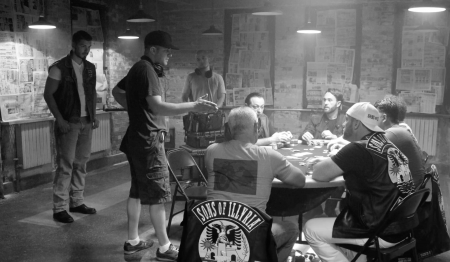
Filmmaker Zef Cota directing a scene of The Trouble
“Definitely. The South Bronx happens to be where my production studio Alphabet City Films is located. It’s right outside of Manhattan. Although we did shoot part of the movie in the northern Bronx, particularly the cemetery scene we shot outside of St. Raymond’s. The South Bronx was just sort of the epicenter of our base of operations…That’s how I was able to keep my budget down, [by] thinking, ‘Hey, how could we have as many things take place around here as possible?’”
How did the limiting the location to the Bronx inform and shape the story you ultimately told?
“When I was first thinking about the idea, I would walk around this landscape in the Bronx and get inspired by spending a lot of time in that area, almost like location scouting before I even had quite a story. I was just trying to let the story come to me, and the first idea, the first spark of a story was ‘geek versus thug.’ I was just thinking, ‘Whoa, that’s something you don’t always see,’ just the juxtaposition of the geek and thug and, like, ‘What would that situation look like? How would it play out in a movie?’
When I had my first meeting with Mark Marini and was pitching him on the idea. He was like, ‘Oh, that’s a great idea. What if we make it sort of like a Western?’…We know the musicians, the guys that did the original score for our movie, and I think that’s a major part of the film. Actually, these guys are Bronx-based musicians, Andrew Marinaccio and Michael Stephens, known as DATA 91. We worked with them on a couple of our short films, and so early on I knew that they wanted to be involved, and I knew it was always their dream to write a score for a Western. Even just thinking about the music and the landscapes, I feel like it helped with the writing, to form the characters, the plot, and everything.”
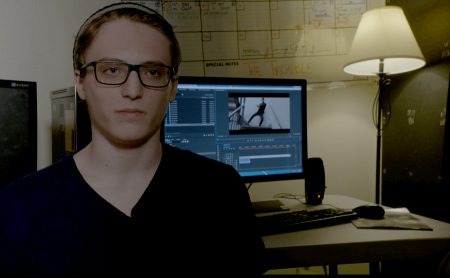
Film Connection grad Jason Malizia
“He was very eager to get to the next level and was really excited about the story. When I screened the rough cut while I was working with him as a mentor, he just really had a lot of enthusiasm and what seemed to be a good attitude and good work ethic. Then I ended up getting him involved as the assistant editor. He just seemed eager to do more, and we needed somebody to do that. It just worked out…Now Jason’s traveling and just working nonstop on productions.”
So how did it feel to win for Best Director?
“It was kind of nerve-wracking because you’re like, are you going to win, are you not going to win? Everybody always says it’s an honor being nominated, but I’ve been in that situation when you’re at the table and they don’t call your name. It feels like you’re getting punched right in the gut…Even a couple days later, I was checking the list, like, ‘Did this really happen?’ I have the award. It seems too good to be true…They showed over 100 films at the festival, and I won for Best Director.”
What’s your advice to first-time indie filmmakers who want to do something akin to what you’ve done with The Trouble?
“Give yourself a deadline, because a goal is just a wish unless you have a deadline. Give yourself a definitive day that you don’t back out of when you say, ‘Okay, I’m going to have this script ready by
this date. We’re going to have our start date on production
this date.’
That sounds like a really simple idea, but if you do that, you’re way more likely to get something done than if you don’t have those hard deadlines. And the other thing is embracing the fact that filmmaking is about problem-solving. Problems are going to happen. You’re going to lose a location, an actor’s going to drop out, something is going to happen that’s going to feel like, ‘Oh, God, why is this happening to me? This is going to derail the whole production.’ But you just have to figure out how to keep that ship moving forward because filmmaking is about problem-solving. If you embrace the fact that it’s about problem-solving, then I feel like you’re more equipped to handle those problems if they spring up.”
Learn
more about Film Connection for filmmaking and writing for the screen.
* * * * *
